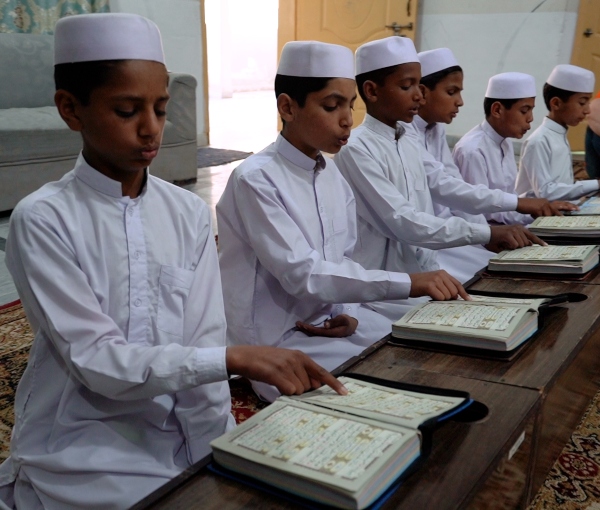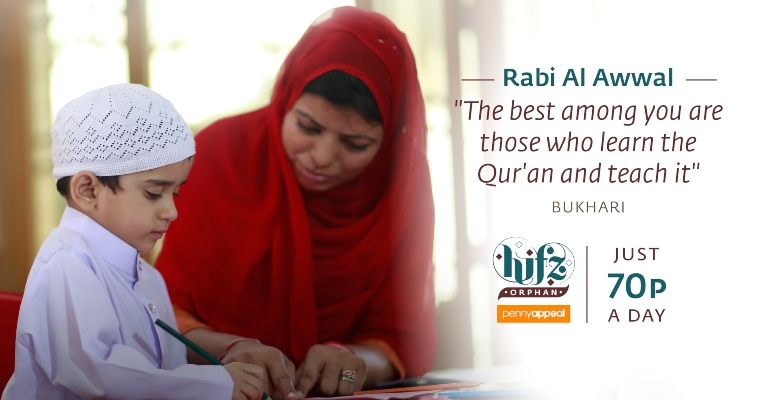Rabi al Awwal: History and Celebration of the Man Who Changed the World

During the month of Rabi Al Awwal, we commemorate the birth of history’s most influential figure – a remarkable man who preached love, compassion, and justice, and whose legacy remains an inspiration to all of humanity.
We are talking, of course, about the Prophet Muhammad (ﷺ), the seal of the prophets of Allah (SWT), herald of Islam’s perfection, and the greatest role model for every single one of us.
Rabi Al Awwal is the third month of the Islamic calendar. In addition to the birth of our noble Prophet (ﷺ), it marks some incredibly significant events including his Hijrah (migration) from Makkah to Madinah (622 CE), and finally his death (632 CE). These three auspicious events are commemorated during this sacred month.
The life of Prophet Muhammad (ﷺ) is a treasure trove of lessons and values that we can all learn from and apply to our own lives. His example shows us that it is possible to achieve true greatness by living a life of humility, compassion, and service to others. Even many non-Muslim figures, from Gandhi to Tolstoy to George Bernard Shaw, have praised him as a ‘saviour of humanity’ who ‘won the hearts of millions of people,’ so deep is his impact on the world.
The Prophet Muhammad (ﷺ) was born in the city of Makkah in Arabia in the year 570 CE. He was orphaned when he was young, and subsequently taken in by his grandfather Abd al-Muttalib (RA), and then his uncle Abu Talib (RA). From a young age, he was known for his truthfulness, sincerity, and integrity, as well as his compassion and concern for others. As he grew older, he became well-known as an honest and just merchant, and was even given the title ‘al-Amin’, meaning ‘the trustworthy one.’
At the age of 40, Prophet Muhammad (ﷺ) received his first revelation from Allah (SWT) through the Angel Jibril (AS), and from then on, he dedicated his life to spreading the message of Islam. As he lost his parents at a young age, and then received the revealed verses of the Blessed Qur’an later in life, we can think of the Prophet Muhammad (ﷺ) as the first Hifz Orphan.
He suffered immense hardship and persecution in Makkah, but never wavered in his resolve to call people to the truth. Finally, after 13 years of struggle, he and his small group of followers were able to migrate to the city of Madinah, where they were welcomed with open arms. Here, the Prophet (ﷺ) established the first Muslim community – a model of brotherhood, equality, and social justice.
Under his leadership, the Muslim state flourished, and its citizens became known for their honesty, generosity, and kindness. The Prophet Muhammad (ﷺ) also forged strong alliances with the Jews and Christians of Madinah, cementing the foundations of religious tolerance in Islam.
The Prophet Muhammad (ﷺ) was also a great teacher. He taught people about the importance of justice, compassion, and living a life of service to others. He also emphasized the importance of treating all people with respect, regardless of their religion or background.
The Prophet Muhammad (ﷺ) is an inspiration to us all. His life shows us that it is possible to achieve greatness by living a life of humility, compassion, and service to others. Let us all aspire to follow his example and make a positive difference in the world.
Amongst the many blessings of the month of Rabi Al Awwal is the fact that our beloved Prophet (ﷺ) was born in it. Not only that, but he was also the first Hifz orphan in history! Why not honour the Prophetic example by sponsoring a Hifz Orphan today for only £21 a month?

FRIDAY 7 OCT 2022
